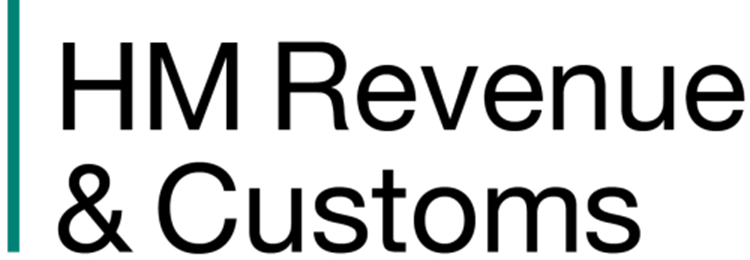
HMRC guidance: Value Added Tax EU Exit Transitional Provisions
Date: Wednesday 10 February 2021
HMRC has provided guidance relating to the VAT treatment of transactions or movements of goods which span the end of the transition period. This guidance covers goods, fulfilment houses, services, call-off stock and financial services regulated by regulation 11 of the Value Added Tax (Miscellaneous Amendments, Revocation and Transitional Provisions) (EU Exit) Regulations 2019 (SI 2019/513) which allows HM Revenue and Customs (HMRC) to make provisions to deal with specific transitional issues connected to the UK’s exit from the EU. Parts of the notice have force of law and will be indicated in each case. The guidance also includes information concerning goods in a warehousing situation.
This notice, in the main applies to movements of goods between the EU and Great Britain. This is because, under the Northern Ireland Protocol, the current rules for movements between the UK and the EU will continue in relation to movements between Northern Ireland and the EU.
The general transitional provisions in relation to EU Exit and VAT are contained in:
- The Taxation (Cross-border Trade) Act 2018 Value Added Tax (Transitional Provisions) (EU Exit) Regulations 2019 (SI 2019/105)
- The Value Added Tax (Miscellaneous Amendments, Revocation and Transitional Provisions) (EU Exit) Regulations 2019 (SI 2019/513)
- The Value Added Tax (Miscellaneous Amendments and Transitional Provisions) (EU Exit) Regulations 2019 (SI 2019/1214)
- The Value Added Tax (Miscellaneous Amendments, Northern Ireland Protocol and Savings and Transitional Provisions) (EU Exit) Regulations 2020 (SI 2020/1545)
For the purpose of this notice, ‘implementation period (IP) completion day’ has the same meaning as ‘end of the transition period’. The terms are set out in section 39(1) of the European Union (Withdrawal Agreement) Act 2020 of ‘IP completion day’ means 11pm on 31 December 2020.
Goods
Goods arriving into Great Britain on or after the end of the transition period from an EU member state will be subject to UK customs procedures and import duties (including import VAT) in the same way as goods imported from the rest of the world. This section deals with various scenarios where the supply or movement of those goods straddle the end of the transition period.
The Great Britain business is required to account for import VAT on their return by using the postponed accounting scheme. They will be able to reduce the amount of import VAT by the amount of acquisition VAT for which they are liable. In cases where the acquisition VAT is equal to or greater than the import VAT, the import VAT entry is reduced to nil.
Fulfilment Houses
This section applies to Great Britain fulfilment houses that, before the end of the transition period only stored goods imported into Great Britain from the EU.
Since April 2018 UK fulfilment houses that store imported goods belonging to businesses situated outside the EU have been required to apply and gain approval from HMRC to operate such a business. Otherwise, from 1 April 2019, they can be liable to criminal or civil sanctions, together with the forfeiture of any goods being stored. This is referred to as the Fulfilment House Due Diligence Scheme (FHDDS).
At the end of the transition period, the FHDDS will also apply to Great Britain fulfilment houses that store goods from anywhere outside the UK which are owned by non-UK businesses. This will mean that those Great Britain fulfilment houses that previously only stored goods from EU member states will now have to register for the FHDDS.
Fulfilment houses based in Northern Ireland are not affected by this. They still have to register for FHDDS only if they store goods imported from outside the EU which are owned by businesses situated outside the UK and EU. Goods stored in an Northern Ireland fulfilment house that are supplied from Great Britain are not subject to FHDDS and vice versa.
Services
Although the main rules that determine where supplies of services are taxed have not changed as a result of the end of the transition period, some of the consequential legislative changes have resulted in the place of supply or the liability of supplies changing in limited circumstances (for example, certain professional services to non-business customers). This could lead to problems of double taxation with services being taxed at both the actual tax point and the basic tax point.
For those services affected, where the two tax points have differing treatments the basic tax point will apply.
Call-off stock
Call-off stock refers to goods transported by a supplier from a state of origin to a state of destination. At the time of the transport of goods, the supplier already knows the identity of the person to whom these goods will be supplied (called-off) at a later stage and after they have arrived in the state of destination. Where that stock falls under the EU simplification for call-off stock, the supplier does not need to register for VAT in the member state of destination, account for acquisition VAT and then make a domestic supply. Instead, the customer in the member state of origin accounts for acquisition tax once the goods are ‘called-off’.
This transitional rules preserves the pre-end of transaction period rules for call-off stock where that stock is already in Great Britain at the end of the transition period. If, after a period of 12 months after the goods arrival in Great Britain, the goods have not been called off to either the original customer or another customer(s), the supplier must register for VAT in the UK and account for acquisition VAT on them. Any subsequent supply of the goods will be a domestic UK supply if sold to a Great Britain business.
Financial Services
After the end of the transition period, the Specified Supplies Order will extend the exempt with refund VAT treatment of certain supplies of financial services (specified supplies) to customers in the EU.
For the full details CLICK HERE.
